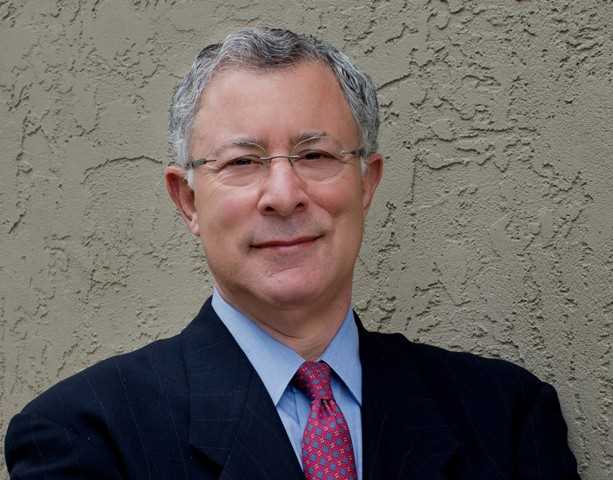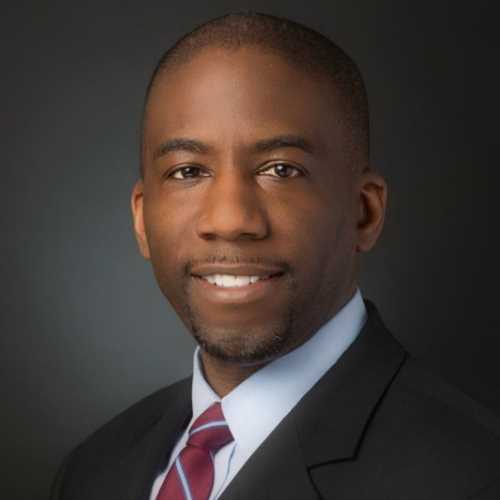
The U.S. healthcare system is experiencing a complex reckoning — a collision of rising costs, emerging technologies, and shifting incentives that affect how care is delivered, financed, and experienced. As policymakers and providers scramble to adapt, leading voices like healthcare keynote speakers Dr. Gabrielle Lyon, Nathan Kaufman, and Dr. Ted James are helping decode the issues behind some of healthcare’s biggest stories: the hype and hope of blockbuster drugs like Ozempic, the unsustainable grip of insurance companies, and the cautious optimism around artificial intelligence in medicine.
Each expert brings a unique lens to the conversation, offering clarity on the forces shaping today’s healthcare landscape — and what changes might be necessary to ensure a system that’s both sustainable and humane.
The Ozempic Craze: A Wonder Drug With Warnings
 Dr. Gabrielle Lyon, a board-certified family physician & trained in geriatric nutritional sciences, has become a prominent and trusted voice in the national conversation around semaglutide drugs like Ozempic. Originally developed to treat type 2 diabetes, Ozempic has soared in popularity thanks to its now widely marketed ability to support weight loss — leading some to dub it a “miracle drug.” But Lyon urges a more measured approach.
Dr. Gabrielle Lyon, a board-certified family physician & trained in geriatric nutritional sciences, has become a prominent and trusted voice in the national conversation around semaglutide drugs like Ozempic. Originally developed to treat type 2 diabetes, Ozempic has soared in popularity thanks to its now widely marketed ability to support weight loss — leading some to dub it a “miracle drug.” But Lyon urges a more measured approach.
As the founder of Muscle-Centric Medicine®, Dr. Lyon advocates for prioritizing muscle health and metabolic resilience. She supports the use of Ozempic for individuals struggling with obesity or related metabolic disorders — especially when it’s part of a broader lifestyle overhaul. According to Lyon, the real promise of Ozempic lies in its ability to suppress appetite, increase feelings of fullness, and help patients consume fewer calories. These effects can support long-term health improvements, particularly in conjunction with a diet rich in nutrients and a consistent exercise routine.
However, Lyon also cautions against the notion of Ozempic as a shortcut to health. She believes an overreliance on the drug could set patients up for failure if it’s not paired with sustainable behavioral changes.
In a recent podcast, Lyon emphasizes this point: “At the Institute for Muscle-Centric Medicine®, we do utilize these medications for certain patients, but we also emphasize the importance of fitness and nutrition in tandem with these tools to prevent potential downsides like loss of muscle mass.”
Insurance Companies Under the Microscope: Kaufman Sounds the Alarm
 While medications like Ozempic dominate headlines, Nathan Kaufman, Managing Director of Kaufman Strategic Advisors, is drawing attention to the less glamorous — but no less critical — issue of healthcare financing. With over four decades of experience as a strategist, Kaufman has emerged as a sharp critic of how insurance companies are operating in today’s healthcare environment.
While medications like Ozempic dominate headlines, Nathan Kaufman, Managing Director of Kaufman Strategic Advisors, is drawing attention to the less glamorous — but no less critical — issue of healthcare financing. With over four decades of experience as a strategist, Kaufman has emerged as a sharp critic of how insurance companies are operating in today’s healthcare environment.
His primary concern? That insurers are shifting an unsustainable share of financial risk onto patients, often with dire consequences.
Kaufman points to widespread use of high-deductible health plans, co-insurance, and steep co-pays that were initially introduced to encourage patients to become more discerning healthcare “consumers.” Instead, many are now avoiding or delaying care due to cost — a dynamic that leads to worse health outcomes and higher downstream expenses.
“It’s a model that benefits insurers, not patients,” Kaufman says. “People pay high premiums and still avoid going to the doctor because they can’t afford the out-of-pocket costs.”
The irony, according to Kaufman, is that insurance companies are posting record profits while the financial health of hospitals and providers is deteriorating. In fact, he reports that nearly 65% of hospitals in the U.S. are operating at a loss. These economic pressures have already led to hospital closures in rural and underserved areas, reducing access and deepening health inequities.
Kaufman is calling for a fundamental reevaluation of the insurance model. He believes insurers should assume more actuarial risk — for example, by offering first-dollar coverage that encourages patients to seek early, preventive care. He’s also wary of innovation for innovation’s sake, urging stakeholders to prioritize practical solutions over flashy but unproven technologies.
“If we want a healthcare system that serves both patients and providers,” Kaufman argues, “we need to realign incentives and rebuild trust.”
Artificial Intelligence: The Future of Medicine or a Fad?
 While the financial strain on providers and patients is very real, some in the healthcare space are turning to technology as a path toward relief. Dr. Ted James, a practicing physician and healthcare thought leader, sees artificial intelligence (AI) as a promising — but not perfect — tool to help restore balance to the system.
While the financial strain on providers and patients is very real, some in the healthcare space are turning to technology as a path toward relief. Dr. Ted James, a practicing physician and healthcare thought leader, sees artificial intelligence (AI) as a promising — but not perfect — tool to help restore balance to the system.
In a recent Doximity article, James highlighted how AI is already being used to reduce administrative burdens, from drafting insurance letters to streamlining surgical planning. These use cases have shown measurable gains in efficiency, particularly in primary care settings and tech-forward specialties like neurosurgery. The hope is that by automating routine tasks, physicians can spend more time with patients and less time on paperwork.
A recent survey of over 1,000 physicians found that more than two-thirds believe AI already helps — or has the potential to help — free up clinical time. Younger doctors, especially those under 30, are the most optimistic about AI’s role in medicine.
Still, Dr. James tempers enthusiasm with a healthy dose of realism. He cautions that any AI implementation must be carefully validated and monitored to avoid bias, ensure safety, and protect against legal and ethical pitfalls. James believes AI isn’t a magic fix; It’s a tool. And like any tool, it can either help or harm, depending on how we use it.
For James, the ultimate goal is to return healthcare to its roots: more personal, patient-centered, and equitable. If deployed thoughtfully, AI could help providers refocus on the human side of healing — but only if the industry remains vigilant and inclusive as these tools are integrated.
What This Means for Healthcare’s Future
Between blockbuster medications, entrenched insurance giants, and rapidly evolving tech, today’s healthcare system is under more pressure than ever. But if there’s one clear message these top healthcare stories tell us, it’s that there is an urgent need to rebalance the system around the people it serves — both patients and providers.
Whether you’re grappling with medication choices, facing rising insurance costs, or evaluating the promise of new technologies, these healthcare keynote speakers offer critical insights into where healthcare is headed and what needs to change.
Bring one of these forward-thinking healthcare keynote speakers to your next event to explore how your organization can navigate the challenges ahead — and lead the way in building a healthcare system that truly works.
Recent Posts








Sign up for our Email Newsletter
Testimonials

Need Suggestions? Have Questions?
Call to discuss how we can you help find the right speaker(s) for your organization.
© 2025 Executive Speakers Bureau. All Rights Reserved.
Design and Developed by eBiz Solutions
Get Ideas in 1 hour or less
Executive Speakers Bureau consistently receives praises about our speed and efficiency. From the beginning of your event planning, our extensive online speaker database and resourceful staff allow us to quickly equip you with the best speaker for your event.
Need a last minute speaker? No worries. Our speed and efficiency help us give you ideas for speakers in one hour or less.

 Jessica Welch
Jessica Welch












Comments
Leave a Comment